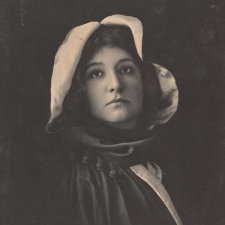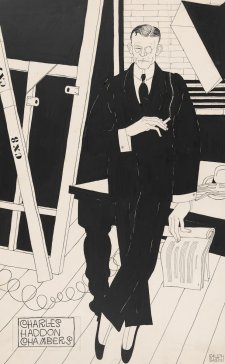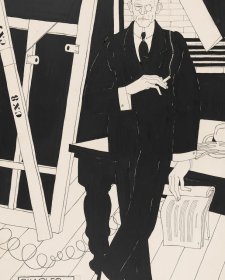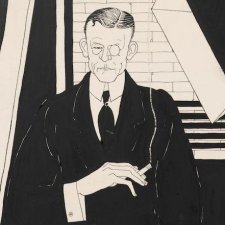Dame Nellie Melba GBE (Helen Porter Armstrong, née Mitchell, 1861–1931) was a world-renowned soprano. Raised in Melbourne, at the age of twenty she was taken by her widower father to Mackay, where she met Charles Nesbit, a man who, according to her biographer, ‘agreeably combined exceptional skills as a rough rider with the recommendation of a gentle birth’. She had a son with him, but after a year she left him, returning to Melbourne to study under Pietro Cecchi. Making her way to Paris she became a pupil of Mathilde Marchesi, on whose advice she adopted the name Melba, derived from her native city, Melbourne. After making her début in Brussels in 1887, aged twenty-six, she made her Covent Garden debut in Lucia di Lammermoor the following year, but it was from June 1889, when she sang the title role in Gounod’s Romeo et Juliette, that she dated her success in London. Henceforth she performed regularly at Covent Garden, where she maintained a private dressing room and gave her final performance in 1926. Over the same period, mobbed everywhere by fans and enjoying the attention of many lovers including Philippe, Duc d’Orléans, she made sensational tours of the USA and Europe. Partly resident in Australia from 1909 onwards, she sang the national anthem at the opening of Parliament House, Canberra in May 1927, during the period in which she made so many farewell appearances that across Australia the phrase ‘doing a Melba’ came to mean making repeated announcements that one is leaving, without actually departing. On her grave in Lilydale Cemetery, Melbourne, is the farewell uttered by Mimi in La Bohème: ‘Addio, senza rancor’ (‘Goodbye, no hard feelings’).
Collection: National Portrait Gallery
Purchased 2007



On one level The Companion talks about the most famous and frontline Australians, but on another it tells us about ourselves.



1 August 2014
A question lately cropped up in connection with Madame Melba as to whether fame and celebrity are not essentially the same thing. My feeling is that they are different.



Charles Haddon Chambers the Australian-born playboy playwright settled permanently in London in 1880 but never lost his Australian stance when satirising the English.